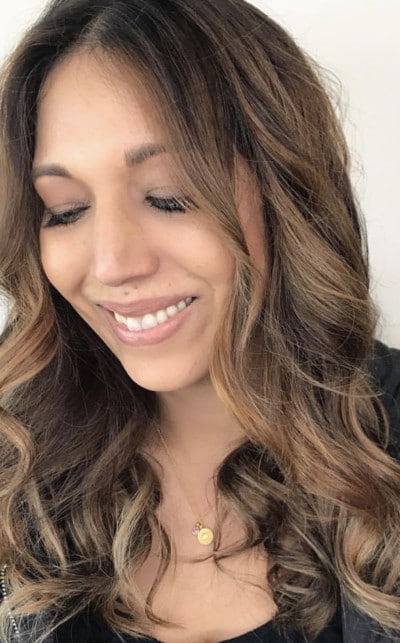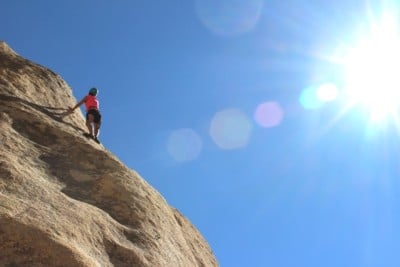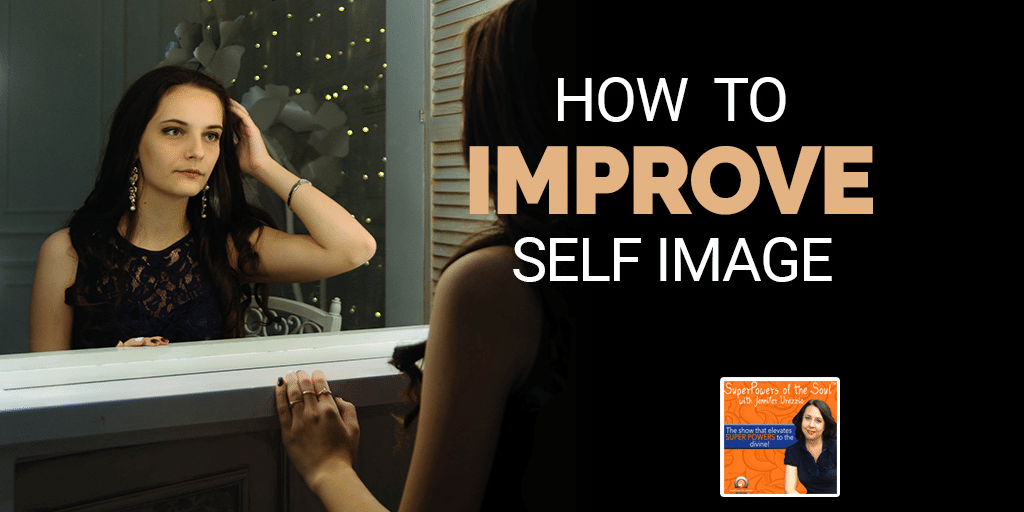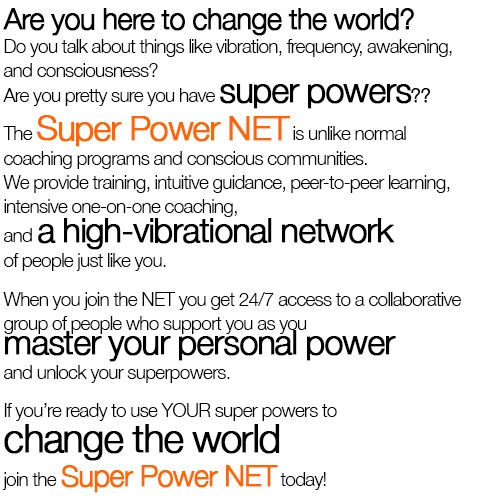
Hello, everyone, and welcome. I’m Jennifer Urezzio, SuperPower Expert and founder of Soul Language, and this is SuperPowers of the Soul. I’m with Ranbir Puar today and the topic is how to improve self-image. Welcome. How are you today?
I’m fantastic. How are you, Jennifer?
I’m doing wonderful. My voice is getting a little hoarse. I’ve been talking since nine o’clock this morning. But I am so happy that you are here and I cannot wait to hear your first answer to this question, which is, what do you consider the super power of your soul?
Well, I think the super power of my soul is to actually interesting because I look at it from what it does for me versus what it does for the world. I felt like I was so disconnected from my soul for a good chunk of my life. So the super power of my soul is knowing that I have one and knowing that I have the ability to be bigger than I ever imagined, soul-wise, and it’s not something I really got when I was younger. It wasn’t until about my mid-20s where I understood really what my soul was and that I wasn’t separate from everybody else. That feeling of validation and inclusion with every other human is the super power of my soul, knowing that I’m connected to everyone.
That’s like the best super power I’ve heard yet, by the way.
That’s a great answer. I’ve asked this type of question since I’ve been in my 20s. But before, it was, “What would you consider one of your super powers?” And it was always my favorite question to ask on a date. If a man said, “Oh, it’s to fly.” I was like, “Yeah, this date’s going nowhere, because you’re boring.” You just answered that question in such a beautiful way, so I’m very excited about it.
Thank you.

The competitive side of me wants to win, wants to be the best in the world, wants to make sure everybody knows everything that I can possibly tell them.
You’re welcome. We talk about sacred purpose during these podcasts, and I think people have sacred purpose and sacred mission all mixed up in their head. They think it’s really about doing and it’s not. It’s what you’re profoundly here to be, and then offer that experience to others. What do you consider your sacred purpose?
The sacred purpose for me, it comes back to that sole purpose again. It’s first understanding that I’m one of many and understanding what I don’t actually do. The competitive side of me wants to win, wants to be the best in the world, wants to make sure everybody knows everything that I can possibly tell them. And then when you peel back the layers and you get closer to that sacred part of your soul, you realize you actually only have to help one person. And if you can help that one person feel the way you do inside, which is understanding that you’re part of this infinite universe, then you’ve sort of, I call it, turned their light switch back on. So my sacred purpose is to help anyone that I meet and, in a unique way, how to turn their light switch back on.

So whether you’re a sales person or a speaker, or whether you’re a receptionist or the CEO, my soul’s purpose is to see that we’re all the same.
And for somebody that’s a salesperson, for example, I might help them turn their light switch back on by helping them understand they actually do have a purpose, and they serve this greater universe, and they serve their community in a bigger way than they think. I think what we tend to do is we have this competitive viewpoint where you have to try to be. There’s this ranking of roles. I feel that part of my sacred purpose is making all the roles equal, because we each have a unique path to our soul’s enlightenment here. So whether you’re a sales person or a speaker, or whether you’re a receptionist or the CEO, my soul’s purpose is to see that we’re all the same.
Beautiful! I love that. I think that’s one of the things that I really love about the paradigm, which is it gives a structure to everyone to tune in and to have that pathway of doing that. You and I are kind of speaking the same language.
Yeah. I think it’s unfortunate when people think that, especially in the age of social media where they’re seeing a highlights reel, and they’re thinking that maybe their job, for example their work job or maybe they’re a mom at home, and they feel like they’re not doing enough. I have this saying that I use all the time. I say, “Stop measuring yourself with sticks that belong to others.”
Love it.
So my soul’s purpose is to get your own ruler.
I love that. I mean, now that’s so important. Because when we do that measuring, right? That triggers a lot of not enough in people. We’re going to talk about how to improve self-image after the break, but when keep comparing and keep being in the not enough, it’s really hard to hear our soul. It’s really hard to feel our light. So I’m really excited about our continuing to talk.
With you.
So often there’s a big theme our soul shares with us over our journey. What has been a big, common theme of your soul and your journey?
It’s the light and the dark has been the biggest theme. I think that sometimes when I feel like I’m getting ahead and feel really light, then all of a sudden something dark comes out of the blue. And it’s about reconciling that the journey includes the light and the dark, because without the darkness I can’t see the stars, and it gives that opportunity to forget this thing that I’m sold by marketing and commercialization in Western World that I’m supposed to have this perfect experience without any darkness.
Now, when I have challenges, instead of saying, “Why is this happening to me?” I ask God, or during meditation, I try to listen for answers on how can I benefit from this. What does my soul want to learn from this? Because it’s here to grow, and the light and dark guide me to my soul’s growth. Because I didn’t come here just to flat line. I came here to push my spiritual experience.
I’m smiling over here. Because when we talk about those men that I felt were boring to date, I would call them flatliners.
Yeah.
We use a lot of the same language. And I have a sneaky suspicion one of our soul languages; we might have one in common. I agree with you. I think so often in this Western way of spirituality, it’s like the Care Bears. It’s supposed to be light and fluffy and blah, blah, blah.
Yes and the Care Bears. What are funnier than rainbows, people?
Right. No really which amazing song is just highlights, high notes or low notes. It’s the combination of the entire scale, and I think so often we think-
That’s so beautiful, Jennifer.
Oh, thank you. I think, for me, when a challenge comes up, it’s an invitation to bring more lightness, to bring more soul into my experience. And yeah, there are days that I forget that, because I’m human. But God’s not.
Amen. Me too.
Right? That’s why we have mentors and practices and ongoing conversations and tool to turn to. One of things that you will always catch my anecdotal honor roll about is, “Oh, but I’ve worked on that. I’ve done that. I’ve done that.”
Amen.
Every time someone says that, especially a potential client, I go, “Yeah, that’s where the gold is,” because you think you’ve done that, right?
Exactly.
So before we break, you talked a little bit about it. You gave us little highlights about how your soul supports others. But what else do you want people to know about how your soul is out there supporting community and others?
Well, I try to do some on the down-low. I try to do some in places where people wouldn’t expect to find me. So I’ll run small meditation groups that are so private that I won’t tell people about it. I’ll kind of put it out there and whoever shows up is supposed to be there and get what they want out of it or what they need out of it. So I’ll do it that way, like in a real private way or a small way.
I do one-on-one coaching. I teach children, because I feel like I saw the same. I started off as a crisis management coach in 2009, and I kept seeing the same patterns in mine. I call them, bent adults versus broken adults, and helping them get back on track. But there was this same sort of system that I use or the same pattern I saw in all the adults. So I started teaching children, as well. I do that through Awakening Your Inner Champions, our kids edition. I do online webinars. So I do it in a variety of ways. I really didn’t think I would like the online way of doing things, because I’m so intuitive and I’m so much a people person that I thought I couldn’t teach online as well as I do in person. But I was really shocked and surprised at how amazing that spot was.
So I do things in a variety of ways. The great thing about it for me too, how it serves me, is it keeps me really pumped up about learning new ways to teach and share. It’s pretty neat learning from eight-year-olds and 84-year-olds.
Oh, my. Yes.
So I get a range of it constantly. So I’m getting a lot of feedback, and I’m able to ping of off of people. I’m able to teach more and more every single day.
Beautiful. Well, everyone stick around, because Ranbir and me are going to be talking about how to improve self-image after the break.
To listen to the entire show click on the player above or go to the SuperPower Up! podcast on iTunes.
Music Credit: Words and Music written and performed by David Delmar. Engineered and produced by John Keenan.
Podcast: Play in new window


